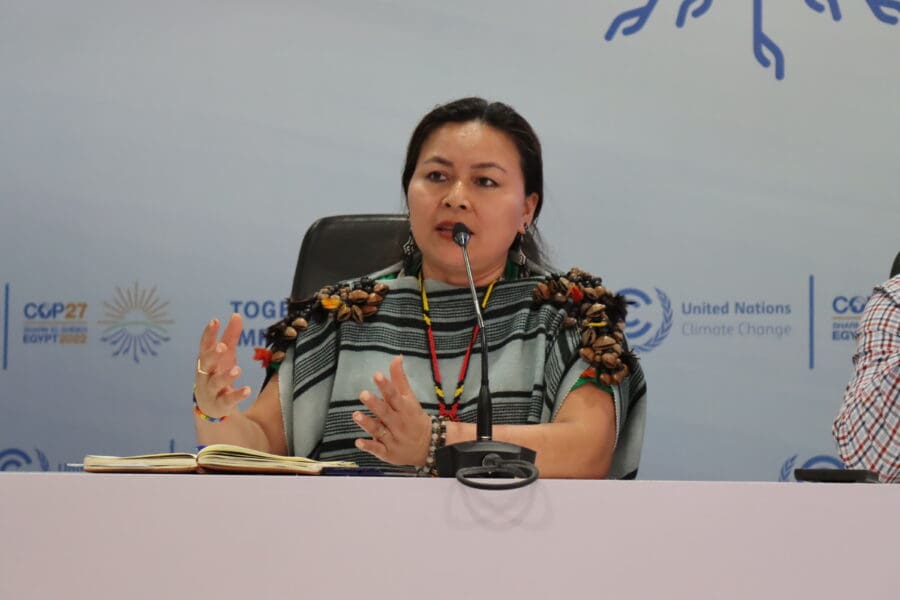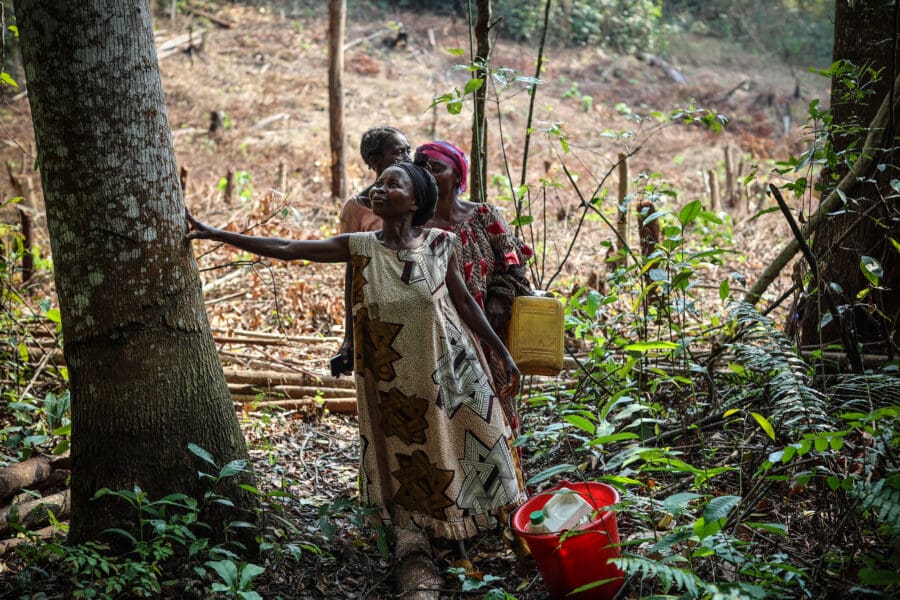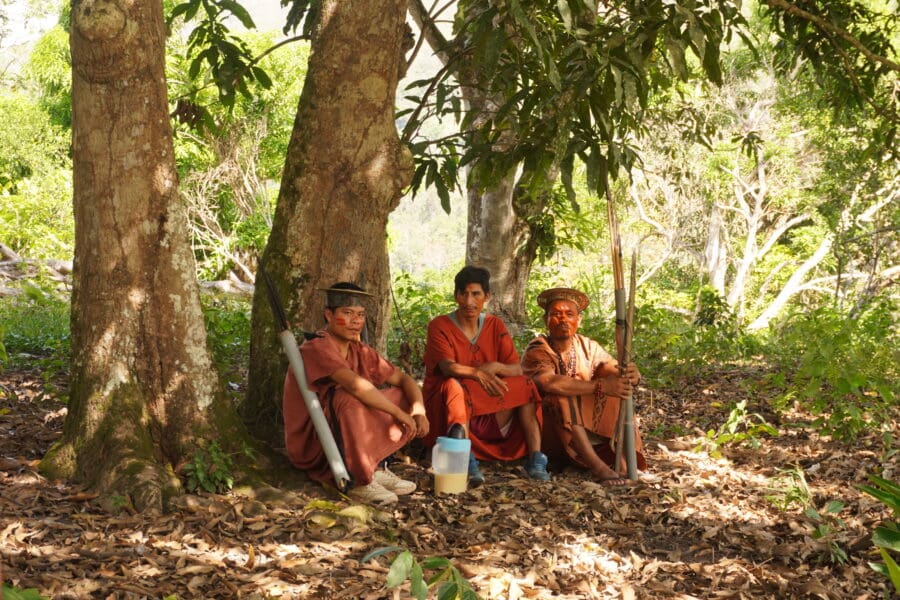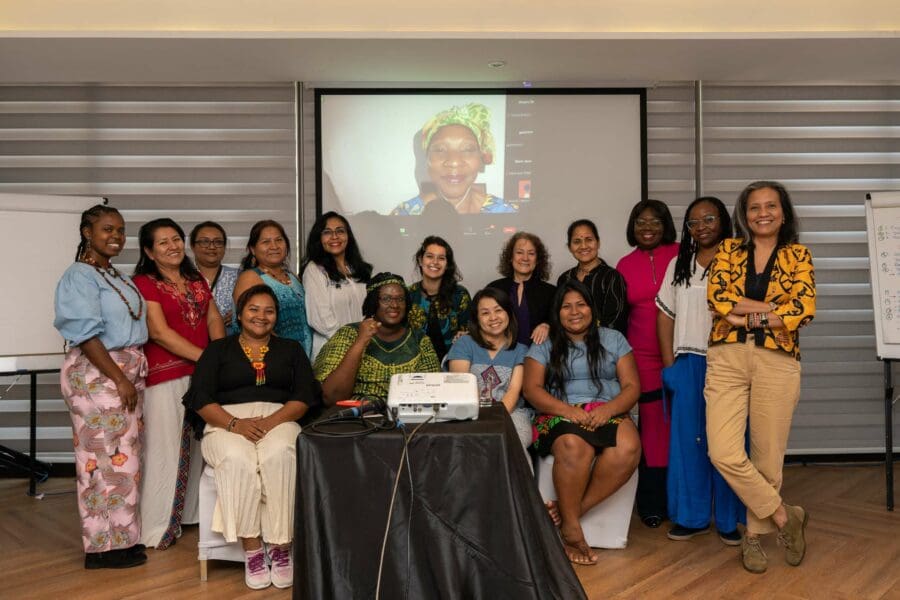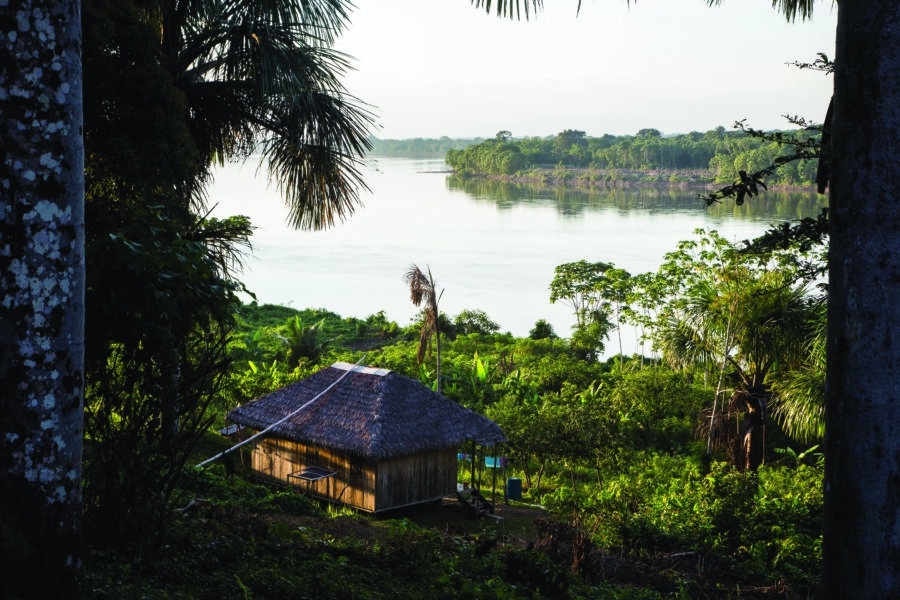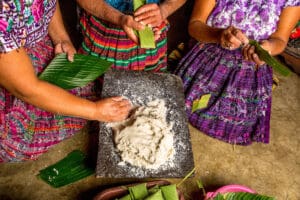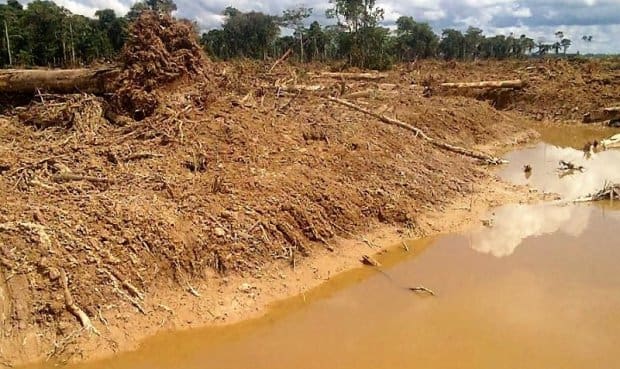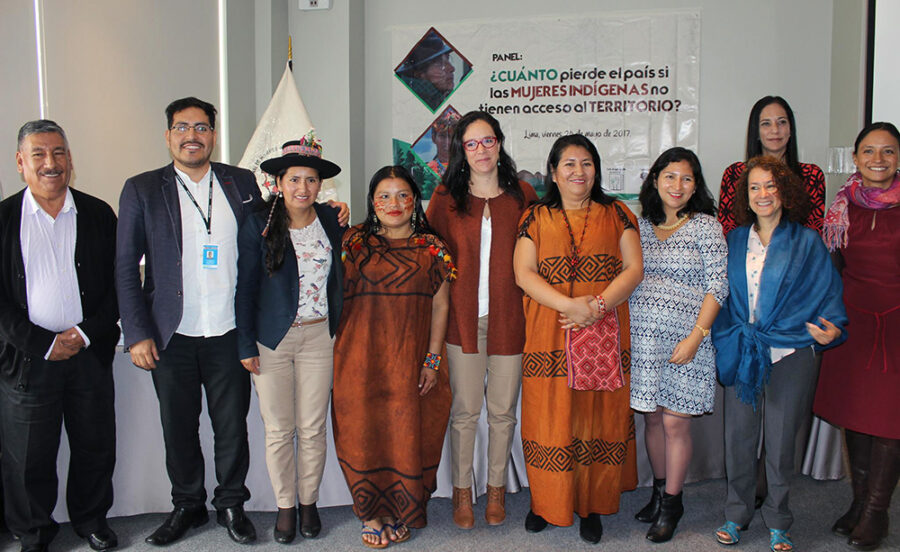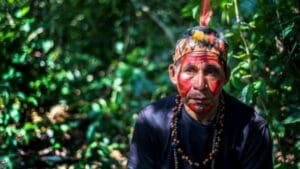The secretary of the Board of Directors of the Interethnic Association for the Development of the Peruvian Jungle (AIDESEP) shares the challenges she had to overcome to become an Indigenous woman leader.
Building on the State of Funding report published in April 2024, this blog post shares important updates on finance for Indigenous Peoples', Afro-descendant Peoples', and local communities' tenure and forest guardianship and examples of how direct funding is already driving important progress in tropical forests and other key ecosystems.
On July 14, the body of Mariano Isacama Feliciano was found on the bank of the Yurac River, a tributary of the Amazon in the Peruvian department of Ucayali. Isacama Feliciano was a human rights defender from the Katkataibo Indigenous People and had been working with his community to resist the presence of illegal loggers before his death.
On 9 January 2024, Congress approved Law 31973—signed by Alejandro Soto and Waldemar Cerrón—which modifies Forestry Law 29763 of 2011. This modification will cause chaos in the management of Peru's forests and an acceleration of deforestation, going against global trends to limit climate change and biodiversity loss.
Members of the new network agree to create more documentation on land rights and governance processes for Indigenous, Afro-descendant, and local community women; call for strengthening advocacy capacity.
This analysis highlights the urgent need to work on a rights-based approach to conservation in the Colombian and Peruvian Amazon considering the multiple collective rights of Indigenous Peoples and Afro-descendant Peoples. The study proposes a roadmap to transform, strengthen and expand existing conservation legal frameworks.
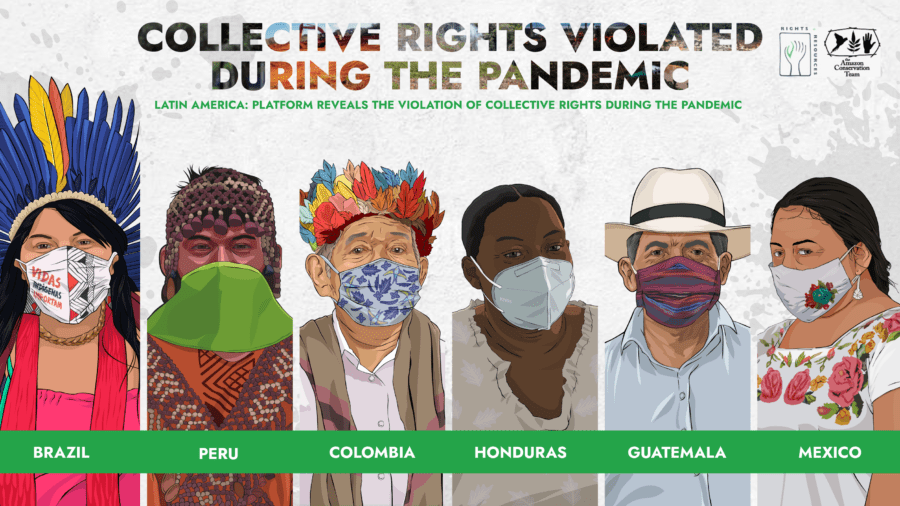
Over 1,900 Native communities impacted by extractive and infrastructure projects during the pandemic
Platform reveals the multidimensional impact of extractive and infrastructure projects in six Latin American countries during the first two years of the pandemic. Peru and Colombia are the countries with the most affected communities.
Secure rights to land are fundamental to enable Indigenous Peoples, and in particular, Indigenous women, to continue their effective stewardship of forests.
Blood in the jungle, we demand justice.
A new study from RRI documents the multidimensional impacts and multiplier effects of collective rights violations by extractive industries and infrastructure development in Latin America. The study tracks 102 cases involving Indigenous Peoples, Afro-descendants, and local communities.
On the 70th anniversary of the Universal Declaration on Human Rights, RRI’s Latin America Program Director reflects on the human rights challenges facing indigenous, Afro-descendant, and peasant communities—and how they and their allies are joining forces to take on these challenges together.
A recent Rights and Resources report provides strong evidence on the importance of recognizing and protecting indigenous rights towards mitigating forest-based emissions and curbing global warming. As a Ph.D. student coordinating the third round of data collection of CIFOR’s Global Comparative Study on REDD+ in Ucayali, Peru, I was pleased to find an on the ground example of why this is important and how tenure security can help achieve the objective of REDD+.
The community of Santa Clara de Uchunya, in Ucayali, Peru, is fighting back against both land trafficking and human rights abuses in the region.
At a panel event in Lima, Peru, indigenous women advocated for stronger legal protections for indigenous women’s rights to govern their lands and resources.
In Peru, women are raising their voices to call attention to their unique role as forest managers, and advocate for full participation in land titling projects that would affect them.
For Amazonian and native communities, it is not a matter of ignoring or rejecting the land market, but rather finding the best way to relate to it while preserving their ancestral properties, rights, traditions, and knowledge (which are key for biodiversity and intellectual property).
Days before the RSPO complaints panel was supposed to issue a final judgment on the complaint filed against them, Plantaciones de Pucallpa withdrew from the RSPO.
Las principales organizaciones representativas de los pueblos indígenas del Perú, se reunieron los días 16 y 17 de agosto, para consolidar una agenda común de incidencia política para promover la titulación colectiva de las comunidades indígenas.
Public auctions will be held in Lima, Peru, over the next few weeks as the Melka group decides to sell land in Ucayali. A public…
LONDON: On the 25th April the complaints panel of the RSPO (Round table on Sustainable Palm Oil) issued a preliminary ‘Stop work order’ to Plantaciones…
As seen on Forest Peoples Programme on April 18, 2016 Between 27 April and 4 May 2016, indigenous representatives and community leaders from tropical forest…
Como se ve en Correo el 6 de abril de 2016 La líder quechua Tarcila Rivera Zea fue elegida miembro del Foro Permanente para las Cuestiones…
Como se ve en La Region el 29 de marzo de 2016 Indica que los gobiernos regionales amazónicos deben detener el negociado y tráfico de tierras,…
Como se ve en AIDESEP el 29 de marzo de 2016 Ante la deforestación de más de 22,076 hectáreas de bosques primarios: 2,126 ha en…

